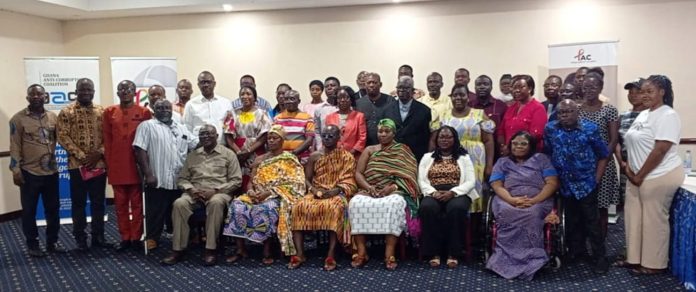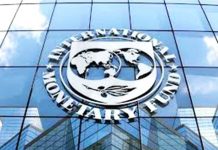Transparency International Ghana (TIG), with the support of its local and foreign partners, has organised a workshop to reflect on Ghana’s anti-corruption journey and government’s anti-corruption commitment in Kumasi.
The local partners are Ghana Integrity Initiative (GII), African Centre for Energy Policy (ACEP) and Ghana Anti-Corruption Coalition (GACC), whilst the foreign ones are Foreign Commonwealth and Development Office (FCDO) and the British High Commission.
The workshop sought to provide an analysis of Ghana’s anti-corruption efforts, identify key implementation gaps and systemic barriers to effective anti-corruption enforcement, as well as propose recommendations for government and anti-corruption agencies on long-term accountability and reforms.
These partners shared understanding of Ghana’s anti-corruption efforts, what has been achieved and what remains undone, including the detailed and concerted approaches to tackling corruption, as well as a communique outlining key concerns and recommendations for future action.
The workshop also touched on Global Anti-Corruption Framework and Government Social Contract and also drew its participants from Anti-corruption institutions, relevant government institutions, trade unions, development partners, private sector and the media.
Ms. Clara Osei Boakye, Government Advisor, FCDO, expressed her excitement over the workshop being held in Kumasi, noting that the workshop must be rotational because the fight against corruption requires “all efforts” around the country.
Ms. Boakye disclosed that the workshop is part of a broader support programme for a period of five years with USD 5million as funding to provide support for Ghanaian institutions, such as civil society and state institutions among others, in the fight against corruption.
She further disclosed that her outfit also provides expertise to Law Enforcement Agencies to be able to thoroughly investigate and prosecute corrupt individuals and institutions, noting that the UK believes in “locally-led initiatives”.
She also stated that the UK believes that corruption finances conflict violence, thus it enables organised groups to cause instability in countries where the UK is present and that the initiative would get to the wider citizenry to join forces to hold government accountable and to see what could be done.
The FCDO Advisor emphasised that there are indications the government was committed to fighting corruption, entreating the citizenry to take advantage of the various reforms, such as the Constitutional Reforms, to have a say in the decision-making of the nation.
Speaking on behalf of the Ashanti Regional Minister, Mr. Kofi Nyarko Aseidu, a Deputy Director at the Regional Coordinating Council (RCC), emphasised the commitment of the Mahama-led government in curbing corruption through initiatives and institutional reforms, adding that the RCC remains steadfast in complementing these efforts by ensuring projects and interventions are delivered with “transparency, efficiency and integrity”.
Mr. Aseidu, therefore, urged the Auditor-General to strengthen public financial procedures to avoid encroachment.
The Deputy Director further disclosed that the war against corruption was not only the responsibility of the government, but requires collective efforts of civil societies and traditional leaders, among others, and entreated all to come together and build a culture where integrity is protected and corruption is “not tolerated nor rewarded”.
From Oswald Pius Freiku, Kumasi









